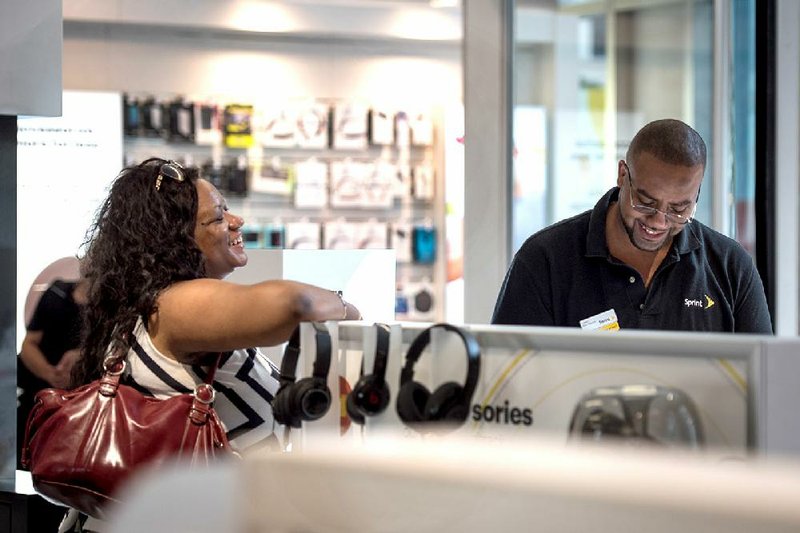Sprint chief executive Marcelo Claure boasted last week about his company's plans to expand employment in the United States, part of a broader investment by the telecom's Japanese controlling owner for which President-elect Donald Trump has taken the credit.
Sprint's domestic expansion comes after several difficult years for the company and its workers. Since 2013, Sprint -- a publicly traded company, majority-owned by Tokyo-based SoftBank -- has reduced its U.S. labor force by roughly 21 percent. The new employment will only partially make up for those lost jobs.
Representatives of Sprint have said the company will create positions for about 5,000 more people in the United States, counting both new employees and workers at Sprint's contractors.
"The 5,000 jobs are new jobs that Sprint is creating or bringing back to the U.S.," Claure wrote on Twitter Thursday afternoon. "Great news for the country."
The company has reduced its head count by about 8,000 since December 2013 and now employs about 30,000. The bulk of the company's labor force works in retail sales and customer service.
As the company let personnel go, Sprint outsourced some of the work to contractors with call centers overseas, said spokesman David Tovar. Some of the 5,000 new U.S. workers also will work for contractors, but at domestic facilities, he said.
For several years, Sprint's business has yielded disappointing results, as profits have been burdened by declining subscriptions to its cellular services. The most recent series of reductions at the company, based in Overland Park, Kan., began in 2014, when the company put Claure in charge of turning things around.
Claure immediately began planning layoffs. The company had "an extensive list of nice-to-haves and those are the first that are going to go," he said shortly after taking the job, the Kansas City Business Journal reported. "You cannot lie to your employees."
Most recently, the company disclosed last January that it was laying off 2,500 workers in U.S. call centers. After the new expansion, more people will be selling phone service for Sprint in the United States again, but not all of them will be working directly for the company.
Recently, subscribers have returned to Sprint, and the company was breaking even again this fall after having lost money every quarter for more than three years, according to Bloomberg.
"We thought it was the right time to make an even greater investment in U.S. jobs and opportunities, because that's good for the country," said Tovar. "If that improves the economy here in the U.S., that's good for Sprint."
He said that the new positions would be in addition to Sprint's previously announced plans to expand its presence on the street with 2,500 new stores and a fleet of vehicles for delivering phones. However, he said, the company has not yet determined exactly what the new workers will do or how many of them will work for Sprint as opposed to contractors.
He also could not provide details on what Sprint expected to pay its new employees and declined to identify the companies with which Sprint is contracting to operate domestic call centers.
The median wage for customer-service representatives last year was $15.25 an hour, according to the Bureau of Labor Statistics. Customer service representatives working in call centers earn a median wage of $12.35 an hour.
The bureau classifies these workers in the category of "sales and office occupations," which has the lowest rate of unionization of any major occupational group. Just 6.6 percent of workers in this category were members of unions last year.
The expansion is part of a broader plan announced in December by Trump and SoftBank's founder, Masayoshi Son. Son and Trump said that plan would employ 50,000 people. While representatives of Sprint say the additional 5,000 positions at the company and its contractors will be included in that total, the money for the expansion will come from Sprint, not SoftBank.
Information for this article was contributed by Brian Fung and Ylan Q. Mui of The Washington Post.
SundayMonday Business on 01/02/2017

